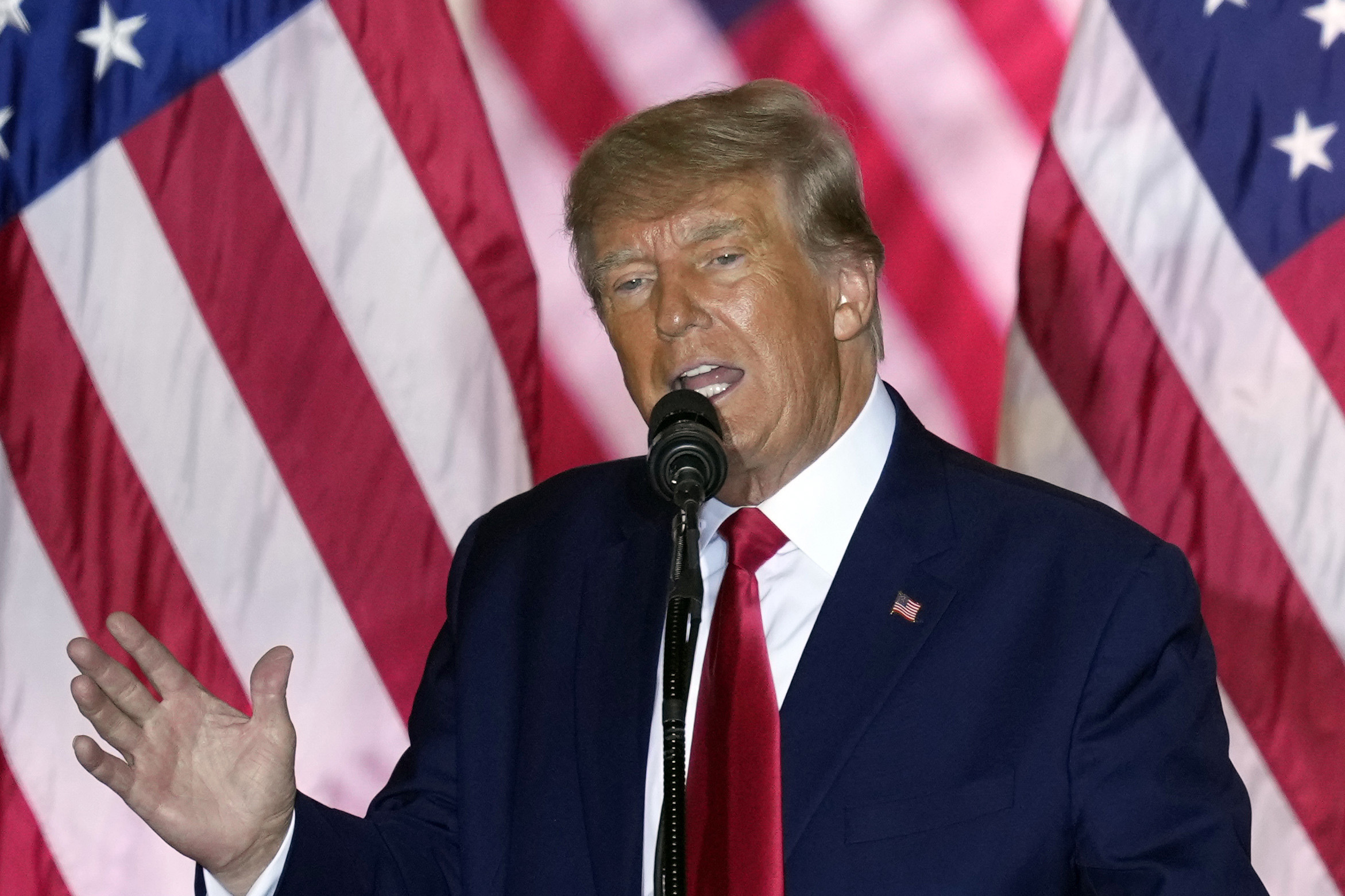Attorneys clash over references to Trump as closing statements conclude in Trump Organization trial
The former president's namesake company is on trial for criminal tax fraud.
Manhattan prosecutors concluded their criminal case against the Trump Organization Friday by challenging attempts by the defense to distance former President Donald Trump from his namesake company's alleged tax fraud.
Two entities of the Trump Organization -- the Trump Corporation and the Trump Payroll Corporation -- are on trial for paying the personal expenses of some executives without reporting them as income and for compensating them as independent contractors instead of full-time employees.
Prosecutors believe the Trump Organization is culpable because the conduct of CFO Allen Weisselberg benefitted the company and because his position as CFO means he was entrusted to act on the company's behalf. Weisselberg, who testified as part of a plea deal, pleaded guilty in August to charges that he skirted taxes on nearly $2 million in company-provided perks that included the rent on his Manhattan apartment, the leases on cars for himself and his wife and tuition for his grandchildren.
Defense attorney Michael van der Veen had said in his closing statement Thursday that jurors "heard no evidence in this case that Mr. Trump or any of his children were aware of anything improper" -- but prosecutor Josh Steinglass told jurors Friday that the defense left them with the "misleading impression that all this was going on right under Donald Trump's nose and he was completely ignorant."
Steinglass said Trump made compensation decisions for top executives, signed the tuition checks for Weisselberg's grandchildren, and authorized the reduction of chief operating officer's Matt Calamari's salary to account for the personal expenses the company was paying.
"This whole narrative that Donald Trump is blissfully ignorant is just not true," Steinglass said.
Later in his closing statement, Steinglass urged jurors to "put aside the elephant that is not in the room" and find the company guilty simply because it helped its executives evade taxes.
The prosecution also challenged the defense's claim that the company should be acquitted because it relied on the expert advice of outside accountant Donald Bender of the firm Mazars USA, who raised no red flags.

"President Trump relied on Bender to the be the watchdog, to make sure the Trump Organization's taxes were done correctly," defense attorney Susan Necheles said. "How could President Trump or Donald Trump Jr. or Eric Trump know things were wrong if Bender didn't tell him?"
Steinglass countered that Bender's "failure to intervene is not a defense to their fraud."
Earlier Friday, prosecutors outlined the benefits the Trump Organization received from Weisselberg's tax dodge.
"By far the most significant benefit ... is that it allowed these companies to pay their top executives less than they otherwise would have," Steinglass said.
The defense had said "Weisselberg did it for Weisselberg," arguing that the former CFO acted out of his own sense of greed and without intent to benefit the Trump Organization.
But Steinglass said that if the company were to cover Weisselberg's expenses by paying him more in salary, the Trump Organization "would have had to give a raise double the amount of personal expenses" to account for taxes.
The prosecution said the tax scheme allowed the company to reduce salary expenditures, avoid the need to give raises, and cultivate executive satisfaction.
"So much for their argument that reducing salaries and bonuses didn't benefit the company," Steinglass said.
The defense was adamant that no benefit occurred.
"The prosecution's case rests on one thing: trying to convince you, the jurors, that Mr. Weisselberg's actions were done in behalf of the company," Necheles said. "They were not. They were done solely to benefit himself. And that is the critical issue in this case."

At the conclusion of closing statements and outside the presence of the jury, van der Veen moved for a mistrial, arguing the prosecution's mentions of Trump during summations were improper.
"We picked a jury based on the People's representations that this case was not about Donald Trump," van der Veen said, pointed out that Steinglass nevertheless "kept saying things about Donald Trump," including that Trump sanctioned the alleged tax fraud.
"There's no evidence he sanctioned tax fraud," van der Veen. "it's a bias that he put on the jury that can't be undone."
Steinglass said he made "reasonable inferences" about Trump to rebut the defense's argument that Weisselberg, Calamari, and controller Jeff McConney "went rogue" and betrayed Trump by carrying out the scheme to evade taxes.
"We are entitled to respond to the defense's suggestion," Steinglass said. "We had a right to make these arguments that the executives did not go rogue."
The judge denied the motion for a mistrial.
"I don't believe it's necessary to declare a mistrial, nor do I believe there should be a curative instruction because I don't believe there's anything to cure," Judge Juan Merchan said.
Merchan said he is open to a limiting instruction to the jury about how much weight to give statements about Trump, who is not charged in the case.
The judge said that on Monday, he will instruct the jury on the law before deliberations begin.




